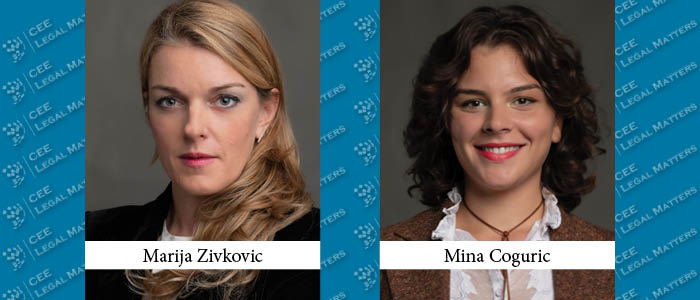In Montenegro the Law on Amendments to the Law on Copyright and Related Rights came into force and it aims to harmonize Montenegrin legislation with EU legislative, particularly in the part that facilitates broad access to copyrighted works by enabling the sharing of online content through various platforms.
In addition, it regulates the use of copyright and related rights for research, education, and the preservation of cultural heritage, and addresses text and data mining as a research method. We present to you a brief overview of the most significant changes:
I. Amendments to the Law on Copyright and Related Rights stipulate that the author has the exclusive right to permit or prohibit the first retransmission of their work conducted by wire or over the air, including via satellite, while subsequent retransmissions, unless the first retransmission was conducted over the internet, are more flexible, requiring authorization from the holder of the exclusive public communication right. The holder of this right may, but does not have to be, the author themself. In the case of direct streaming of copyrighted works for content broadcast in real-time via different platforms (e.g. live streaming), both the broadcaster and the signal distributor must obtain permission from the rights holders.
II. From our standpoint, the new provision that introduces the right of authors whose works are reproduced by photocopying or other similar techniques to compensation from any legal or natural person providing photocopying services for a fee, is particularly interesting, having in mind that this was not previously the case.
III. A new section, 4a, introduces specific provisions concerning online content-sharing service providers, aimed at protecting copyright holders in the digital environment. Online content-sharing service providers must obtain authorization from rights holders, which is done through collective licensing with extended effect. They are obligated to promptly act on a reasoned request from the rights holder to either disable access to or remove the work in question.
- Given the significance of text and data mining (TDM) and the fact that the content being "mined" may be protected by copyright, research organizations and cultural heritage institutions are granted the right to reproduce works to which they have lawful access for the purpose of text and data mining solely for scientific research, without acquiring economic rights or paying a fee. This right is also recognized for other subjects only if the rights holder has not expressly reserved it.
- Furthermore, the amended Law on Copyright and Related Rights introduces a set of provisions aimed at protecting works that are unavailable to the public, which refers to works that cannot be acquired through regular distribution channels. These works may be used under special circumstances to enable public access to culturally significant works.
- A significant innovation is the introduction of collective licensing with extended effect, which allows a collective rights management organization to represent not only authors who have authorized it, but also those who have not, provided that individual rights management is impractical. In addition to the aforementioned condition, the organization must be representative and ensure equal treatment for all rights holders, with the possibility for rights holders to exclude their works from the system at any time.
VII. Regarding the author’s economic rights, the Law introduces an obligation for the acquirer of the copyright or their successor to provide the author with relevant and comprehensive information at least once a year, particularly concerning how the work is used, all revenues generated, and due fees. Furthermore, the contract for the assignment of copyright must include a guarantee for the author to receive appropriate and proportional remuneration for the use of their works. The law prevents situations where the author is unable to exercise their right to compensation, to adjust it, to be transparently informed by the acquirer, or to terminate or amend the contract to revoke the assigned right, as it defines these as inalienable rights. Any contractual provisions that prevent the author from exercising these rights are null and void.
VIII. A special section regulates the rights of publishers of printed publications, granting them the exclusive right to permit or prohibit the reproduction and online availability of their publications. These rights do not include personal use, hyperlinks, or short excerpts. The author of a work included in a printed publication is entitled to an equal share with the print publisher in any compensation, and the rights of publishers of printed publications expire after a period of two years from the publication date.
The Amendments to the Law on Copyright and Related Rights represent a significant step towards enhancing the protection of copyright and related rights by expanding their application, particularly in the context of digital environment protection. The newly introduced mechanisms will serve as a solid foundation for providing transparency and more flexible enforcement of copyright, allowing authors greater control over the use of their works.
By Marija Zivkovic, Partner, and Mina Coguric, Associate, JPM & Partners




